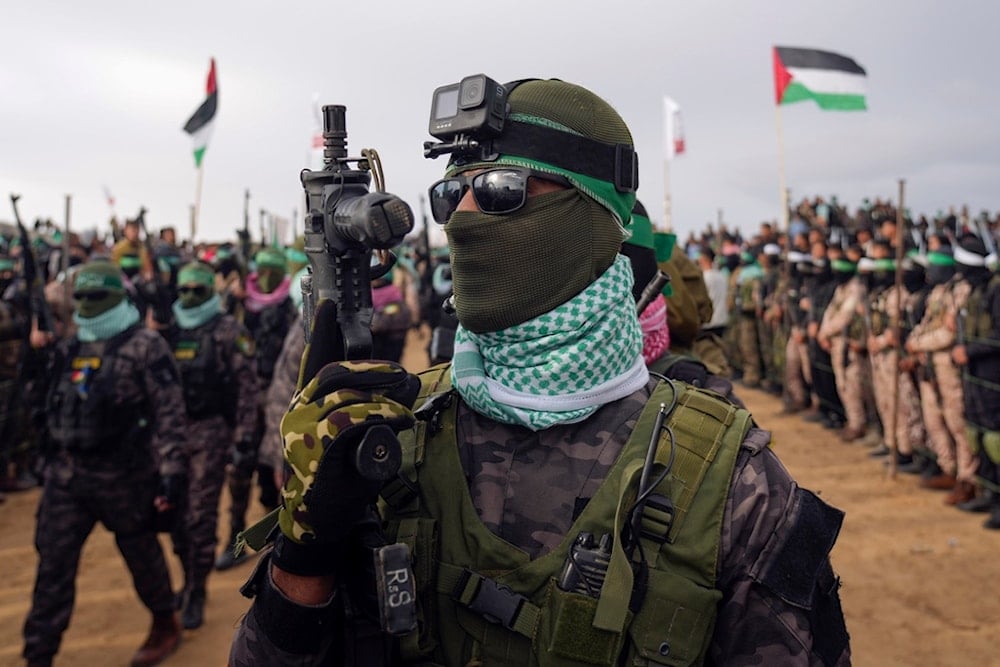Hamas condemns Israeli delay of Palestinian prisoners release
The Palestinian Resistance condemns the Israeli occupation for its refusal to fulfill its commitments under the ceasefire agreement and the subsequent prisoner swap.
-

Hamas fighters take up a position ahead of handing over four bodies to the Red Cross in Khan Younis, southern Gaza Strip, on Thursday, February 20, 2025. (AP)
Hamas has strongly condemned the Israeli occupation's decision to delay the release of hundreds of Palestinian prisoners, who were due to be freed on Saturday in exchange for six Israeli hostages.
In a statement, Hamas dismissed the Israeli claim that the "release ceremonies are humiliating" as a false pretext aimed at evading its obligations under the agreement. The movement emphasized that the ceremonies were conducted with dignity and respect for the released prisoners, contrary to the allegations.
“The real humiliation lies in the mistreatment our prisoners endure during their release,” Hamas stated, highlighting reports of physical abuse, deliberate humiliation, and harsh conditions imposed on detainees until their final moments in Israeli custody.
According to the movement, Palestinian prisoners are often released while handcuffed and blindfolded, and their families are threatened against holding public celebrations to welcome them home.
Hamas also accused Israeli Prime Minister Benjamin Netanyahu of deliberately obstructing the agreement, calling the delay a clear violation of its terms and further proof of the Israeli occupation's unreliability in fulfilling commitments.
The group urged international mediators and the global community to take responsibility and pressure "Israel" to implement the agreement without further delays.
'Blatant violation'
In a Saturday statement, Hamas spokesperson Abdel Latif Al-Qanou said, "The (Israeli) occupation's failure to comply with the release of the seventh batch of prisoners in the exchange deal at the agreed-upon time constitutes a blatant violation of the agreement." He further accused Israeli Prime Minister Benjamin Netanyahu of "procrastination and stalling tactics".
The prisoner exchange is part of a ceasefire agreement intended to secure the release of Israeli captives held by Hamas in exchange for Palestinian prisoners. However, the delay in releasing the latest batch has increased tensions and raised questions about the future of the ceasefire.
This accusation follows previous statements by Hamas that Netanyahu was delaying negotiations for the second phase of the ceasefire, which began after the exchange of four deceased Israeli captives last Thursday that were killed by IOF bombings. According to Hamas, the second phase of the agreement has "not practically begun", despite their readiness to participate. Al-Qanou previously accused Netanyahu of "procrastination" and deliberately delaying progress.

 3 Min Read
3 Min Read










